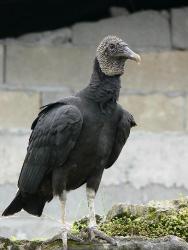 (Franklin County, IN/Statewide) – The Indiana Department of Natural Resources (DNR) has confirmed highly pathogenic avian influenza (HPAI) in a blue-winged teal in Greene County through surveillance conducted by the U.S. Department of Agriculture Wildlife Services and DNR Division of Fish, Wildlife & Nature Preserves.
(Franklin County, IN/Statewide) – The Indiana Department of Natural Resources (DNR) has confirmed highly pathogenic avian influenza (HPAI) in a blue-winged teal in Greene County through surveillance conducted by the U.S. Department of Agriculture Wildlife Services and DNR Division of Fish, Wildlife & Nature Preserves.
HPAI has also been confirmed as the cause of death in black vultures in Jefferson County and is suspected as the cause of black vulture deaths in Franklin County.
Signs of HPAI in waterfowl and raptors include:
- Sudden death
- Neurological impairment (e.g., lack of coordination, swimming/walking in circles, tremors, twisted neck)
- Lack of energy and appetite
- Swelling of the head, neck, and eyes
- Nasal discharge, cough, sneezing, lack of coordination, and diarrhea.
If you find wild waterfowl or raptors that are dead for no obvious reason or showing any of the above signs, report it online at on.IN.gov/sickwildlife.
According to the Centers for Disease Control and Prevention (CDC), the public health risk for HPAI is low. However, it is possible for humans to contract HPAI.
Avoid contact with sick waterfowl and other sick wildlife whenever possible. If a carcass must be removed, put on disposable gloves and a mask, double bag the carcass, and place it in the trash. If possible, use a tool such as a shovel to pick up the carcass instead of your hands. Wash hands with soap and warm water immediately afterward.
The U.S. Fish and Wildlife Service recommends that waterfowl hunters process birds in a well-ventilated area or outdoors and wear protective clothing such as a face mask and gloves. Meat harvested from waterfowl should be cooked to an internal temperature of 165°F before consumption.
Reach out to the Indiana Department of Health (IDOH) if you develop any of the following symptoms after coming in contact with waterfowl: eye irritation or redness, fever, chills, cough, sore throat, runny or stuffy nose, sneezing, shortness of breath, fatigue, muscle or body aches, headaches, diarrhea, nausea or vomiting, or rash.
Call IDOH at (317) 233-7125 during business hours. Outside of business hours, call 317-233-1325 and follow the prompts in the automated menu to speak to the epidemiologist on call.
Some domestic and agricultural animals are also known to be susceptible to HPAI, including poultry, cattle, and cats. If you have these animals at home, be sure to process and dispose of any harvested waterfowl away from your animals and practice good biosecurity measures.
For more information on HPAI, visit on.IN.gov/avian-flu.
For more information about poultry biosecurity measures, visit aphis.usda.gov/livestock-
If you see illness or unexplained death in your poultry, please report it to the Board of Animal Health at IN.gov/boah/species-



